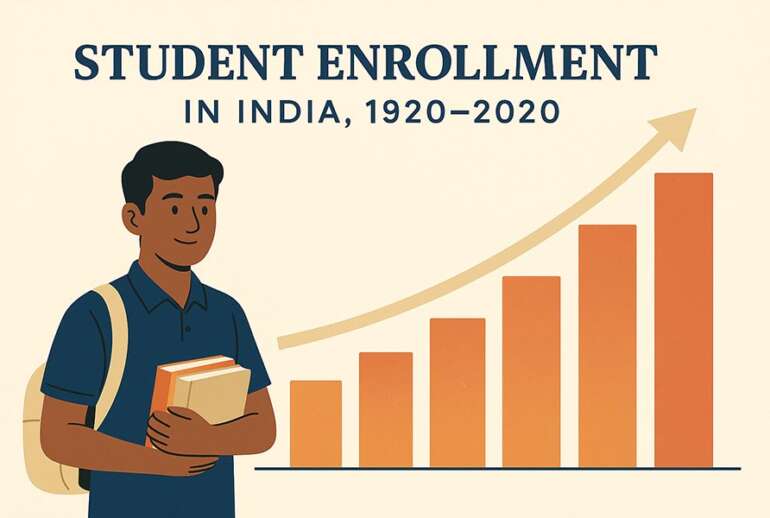Preparing for the Gujarat Secondary and Higher Secondary Education Board (GSEB) exams can be a challenging yet rewarding journey. Whether you’re appearing for the Class 10 (SSC) or Class 12 (HSC) exams, having a solid study strategy, timetable, and practical tips can make all the difference. This guide aims to help students confidently tackle their board exams with structured preparation and reduced stress.
Why Is Board Exam Preparation Important?
Gujarat Board exams are crucial milestones in a student’s academic career. SSC exams lay the foundation for selecting future streams (Science, Commerce, or Arts), while HSC exams determine college admissions and career paths. Doing well can open doors to prestigious institutions and scholarships, making preparation essential.
1. Understand the GSEB Exam Structure
Before jumping into preparation, it’s important to know the structure and pattern of the exams.
SSC (Class 10):
- Subjects: English, Maths, Science, Social Science, Gujarati/Hindi, etc.
- Duration: 3 hours per subject
- Marking Scheme: Generally 80 marks for written exams and 20 marks for internal assessments or practicals.
HSC (Class 12):
- Streams: Science, Commerce, Arts
- Duration: 3 hours per subject
- Includes both theory and practical exams (especially for science subjects like Physics, Chemistry, Biology, etc.)
Check the official GSEB website or consult your school for the latest syllabus and exam pattern.
2. Set a Realistic Study Timetable
Creating and sticking to a personalized timetable is one of the most effective ways to prepare for board exams.
How to Make an Effective Timetable:
- Know Your Productive Hours: Study during the time of day when you’re most alert.
- Allocate Subjects Smartly: Mix theory-heavy subjects with practical ones.
- Include Short Breaks: A 5–10 minute break after every 45–60 minutes of study helps refresh the mind.
- Use the 60/20 Rule: Study for 60 minutes, then revise for 20 minutes what you just learned.
- Weekly Revisions: Dedicate one day a week for revision and solving mock papers.
Sample Daily Schedule:
| Time | Activity |
|---|---|
| 6:30 AM | Wake up & light exercise |
| 7:00 AM | Study (difficult subject) |
| 8:30 AM | Breakfast & break |
| 9:00 AM | School/Home tutoring |
| 1:30 PM | Lunch & rest |
| 3:00 PM | Study (revision + notes) |
| 5:00 PM | Break/Outdoor time |
| 6:00 PM | Study (easy subject or mock test) |
| 8:00 PM | Dinner |
| 9:00 PM | Light reading/revision |
| 10:00 PM | Sleep |
3. Use the Right Study Materials
Apart from textbooks, include the following in your preparation:
- GSEB Textbooks: These are the most important and should be your primary source.
- Previous Year Papers: Practice with at least the last 5 years’ question papers.
- Model Test Papers: Available online and at bookstores.
- NCERT Books: Especially useful for Science and Maths in the HSC Science stream.
- Reference Books: Choose based on teacher recommendation to avoid confusion.
4. Focused Study Tips
Here are some effective strategies to enhance your learning:
a. Concept Clarity Over Rote Learning
Understanding concepts is far more effective than memorizing them. Use diagrams, flowcharts, and mind maps to grasp topics better.
b. Make Notes
Summarize each chapter in your own words. Writing helps retention. Maintain separate notebooks for formulas, important dates, and definitions.
c. Practice Writing
Even if you know the answer mentally, writing it down improves speed and presentation. It also simulates the exam environment.
d. Highlight and Annotate
Use colored pens or sticky notes to mark important points. Visual aids improve memory retention.
e. Use Digital Tools
Apps like Microsoft OneNote, Evernote, and online flashcards can help with revisions and self-quizzing.
5. Handle Each Subject Smartly
Each subject requires a slightly different approach.
Maths:
- Practice daily
- Memorize formulas
- Solve problems from previous years
Science:
- Focus on understanding concepts
- Diagrams are crucial—practice drawing them
- Don’t ignore Chemistry equations and Biology terminology
Social Science:
- Create timelines for History
- Understand maps for Geography
- Use mnemonic devices for remembering facts
English & Languages:
- Improve grammar
- Practice comprehension
- Read editorials to build vocabulary
6. Mock Tests and Time Management
Taking full-length mock exams helps in:
- Getting accustomed to the time pressure
- Understanding question patterns
- Identifying weak areas
Set a stopwatch and simulate real exam conditions. Analyze your performance and revise accordingly.
7. Stay Healthy & Positive
Your body and mind need care to perform at their best.
- Nutrition: Eat a balanced diet with fruits, vegetables, proteins, and water.
- Sleep: Ensure at least 7–8 hours of sleep daily.
- Exercise: Light activity like walking or yoga helps reduce anxiety.
- Meditation: Even 5 minutes a day can enhance focus and calm your nerves.
8. Exam Day Tips
- Reach the exam center early
- Carry all essentials: ID, pen, pencil, eraser, admit card
- Read all instructions and questions carefully
- Manage your time well—don’t spend too much time on one question
9. What to Avoid
- Procrastination: Don’t leave things for the last minute.
- Overloading: Avoid cramming too many topics in a single day.
- Comparing with Others: Everyone has their own pace; focus on your own progress.
Success in Gujarat Board exams isn’t just about hard work—it’s about working smart. With the right strategy, a proper timetable, quality study materials, and a positive mindset, students can confidently face their exams and achieve excellent results.
Remember, consistency beats intensity. Make small progress every day, stay disciplined, and keep your goal in sight. Best of luck to all GSEB students!



